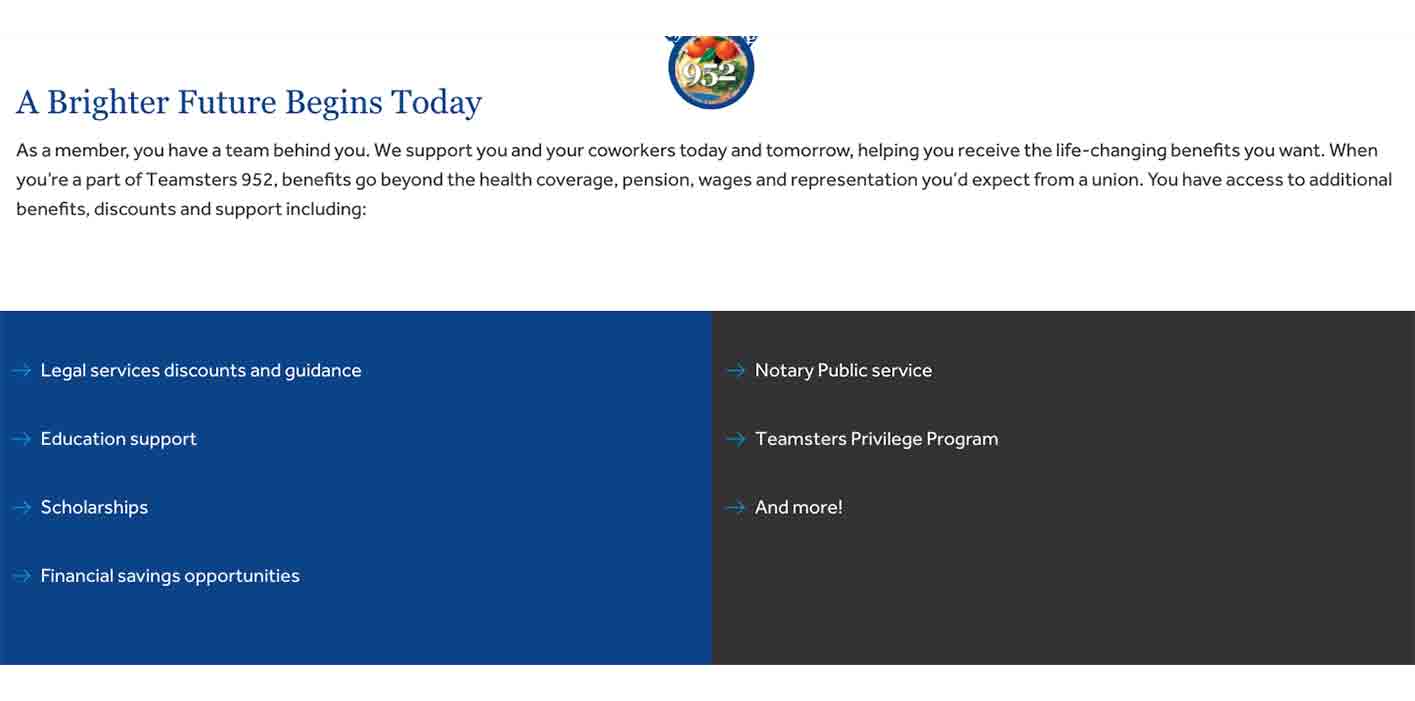Option-1: 
Your Life. Your Rights.
As a member of Teamsters, you have legal rights to protect and support you for whatever comes next. Start by understanding your specific contract and the legal rights below to arm yourself with the power of many.
Option-1: 
Employee’s Right To Union Representation “Weingarten Rights”
The rights of unionized employees to have a union representative present during investigatory interviews were announced by the U.S. Supreme Court in a 1975 case (NLRB vs. Weingarten, Inc. 420 U.S. 251, 88 LRRM 2689). These rights have become known as the Weingarten rights. Employees have Weingarten rights only during investigatory interviews. An investigatory interview occurs when a supervisor questions an employee to obtain information which could be used as a basis for discipline or asks an employee to defend his or her conduct.
If an employee has a reasonable belief that discipline or other adverse consequences may result from what he or she says, the employee has the right to request union representation.
Management is not required to inform the employee of his/her Weingarten rights; it is the employee’s responsibility to know and request.
When the employee makes the request for a union representative to be present, management has three options:
- They can stop questioning until the representative arrives;
- They can call off the interview; or
- They can tell the employee that it will call off the interview unless the employee voluntarily gives up his/her rights to a union representative (an option the employee should always refuse.)
Employers will often assert that the only role of a union representative in an investigatory interview is to observe the discussion. The Supreme Court, however, clearly acknowledges a representative’s right to assist and counsel workers during the interview. The Supreme Court has also ruled that during an investigatory interview management must inform the union representative of the subject of the interrogation. The representative must also be allowed to speak privately with the employee before the interview. During the questioning, the representative can interrupt to clarify a question or to object to confusing or intimidating tactics. While the interview is in progress the representative can not tell the employee what to say but he may advise them on how to answer a question. At the end of the interview the union representative can add information to support the employee’s case.
Disclaimer: This website contains current developments and issues which may be of interest or useful to Unions and Union Members. Although every effort has been made to ensure accuracy, the information and recommendations herein are general in nature and should not be relied or acted upon without contacting the appropriate Teamster Local Union, Trust or State/Federal Agency or seeking legal counsel. This web site is an informational resource only and is not responsible for the content of any linked website.
 ESPAÑOL
ESPAÑOL